Robin, Roodborst, Rotkehlchen, Pisco-de-peito-ruivo, Petirrojo Europeo
Spotted on our property Monte Horizonte in the Alentejo Region of Portugal. Robin sound
The European Robin (Erithacus rubecula), also known as a ruddock, robinet, or (in Anglophone Europe) simply robin, is a small insectivorouspasserine bird that was formerly classed as a member of the thrush family (Turdidae), but is now considered to be an Old World flycatcher (Muscicapidae).
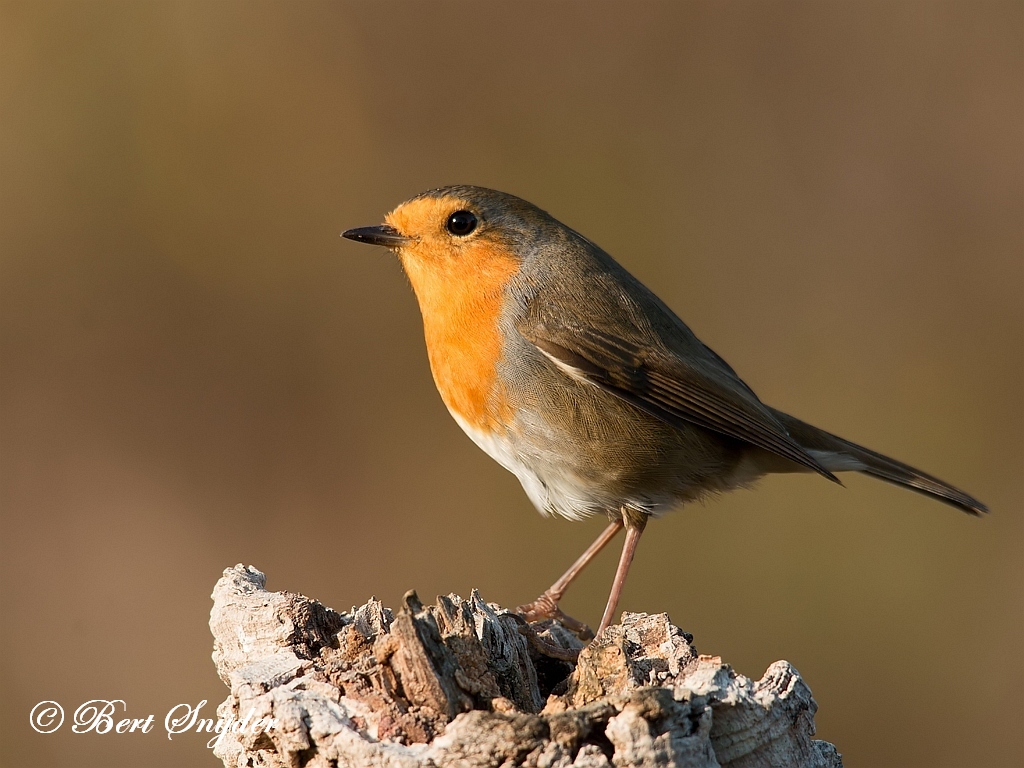
More photos at the bottom of this page.
Around 12.5–14.0 cm (5.0–5.5 in) in length, the male and female are similar in colouration, with an orange breast and face lined with grey, brown upperparts and a whitish belly. It is found across Europe, east to Western Siberia and south to North Africa; it is sedentary in most of its range except the far north.
The term Robin is also applied to some unrelated birds with red breasts. These include the American Robin (Turdus migratorius), which is a thrush, and the Australian red robins of the genus Petroica, which are more closely related to crows.
The European Robin was one of the many species originally described by Linnaeus in his 18th century work, Systema Naturae, under the name of Motacilla rubecula. Its specific epithet rubecula is a diminutive derived from the Latin ruber ‘red’. The genus Erithacus was created by French naturalist Georges Cuvier in 1800, giving the bird its current binomial name of E. rubecula.
The distinctive red breast of both sexes led to the European Robin’s original name of redbreast. In the fifteenth century, when it became popular to give human names to familiar species, the bird came to be known as Robin redbreast, which was eventually shortened to Robin. In American literature of the late 19th century, this robin was frequently called the English Robin. The Frisian robyntsje or robynderke is similar to the English name, while Dutch Roodborstje and French Rougegorge both refer to the distinctive red front.
The Robin belongs to a group of mainly insectivorous birds that have been variously assigned to the thrushes or “flycatchers”, depending on how these groups were perceived taxonomically. Eventually, the flycatcher-thrush assemblage was re-analysed and the genus Erithacus assigned to a group of thrush-like true flycatchers, the tribe Saxicolini, that also includes the nightingale and the Old World chats.
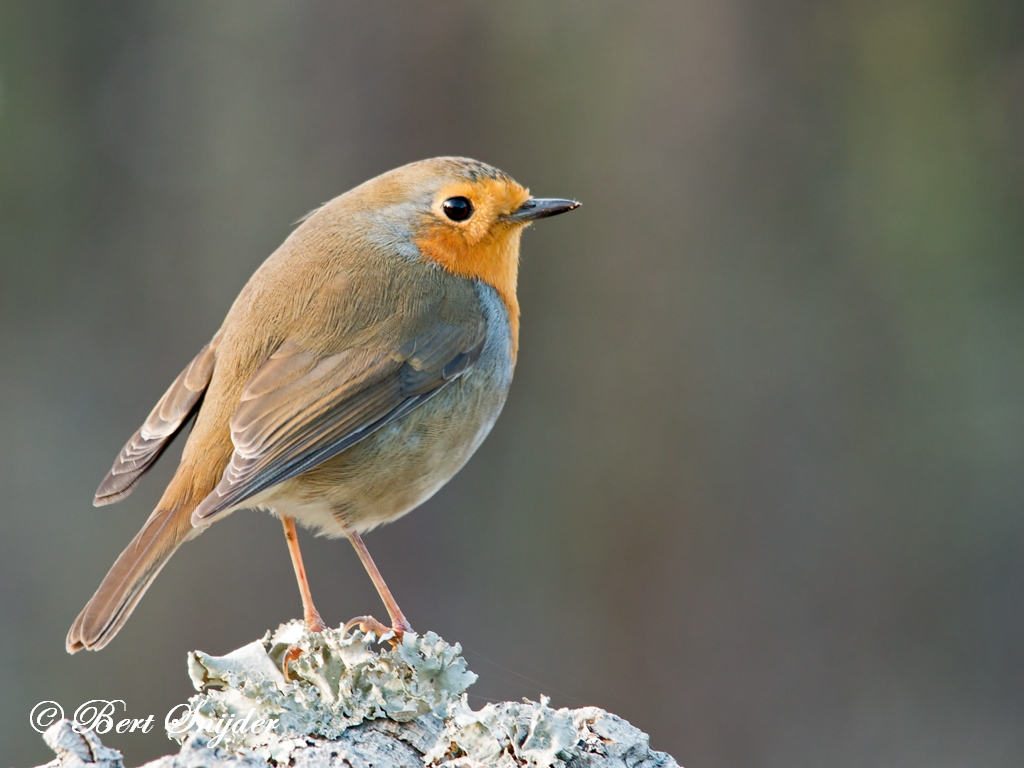
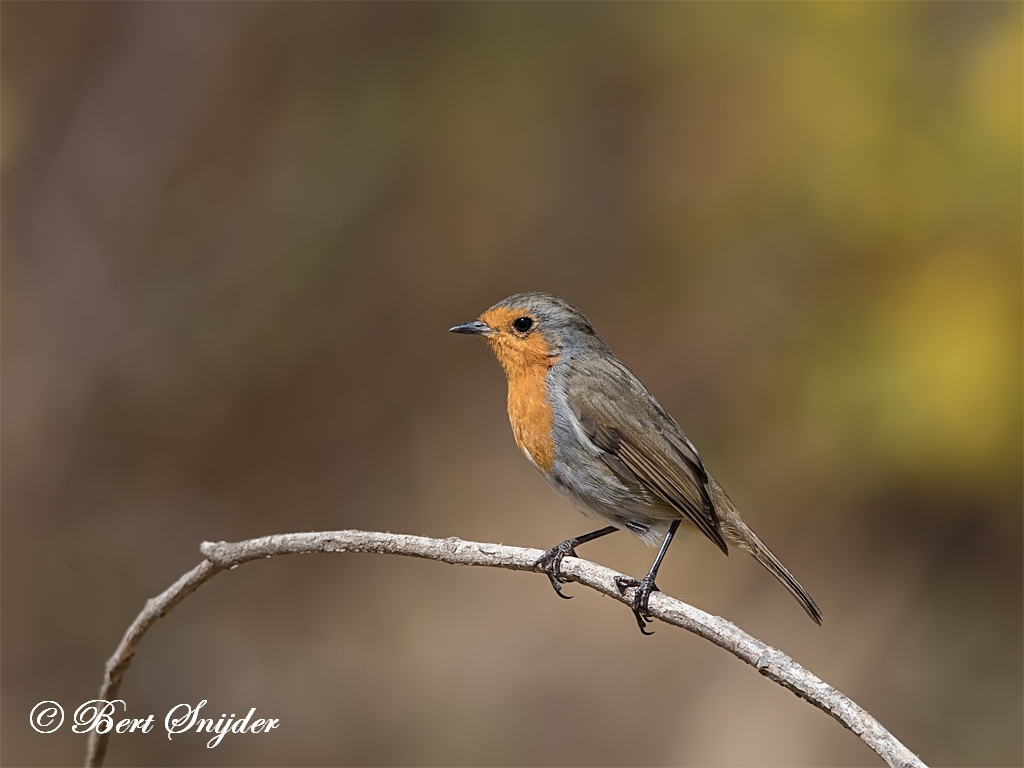
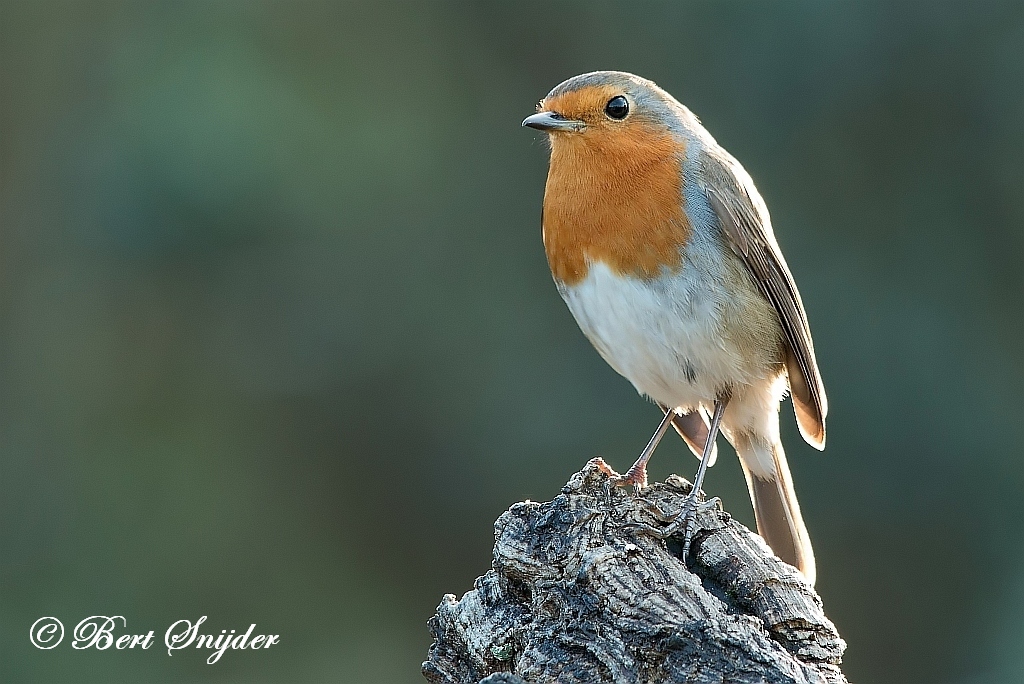
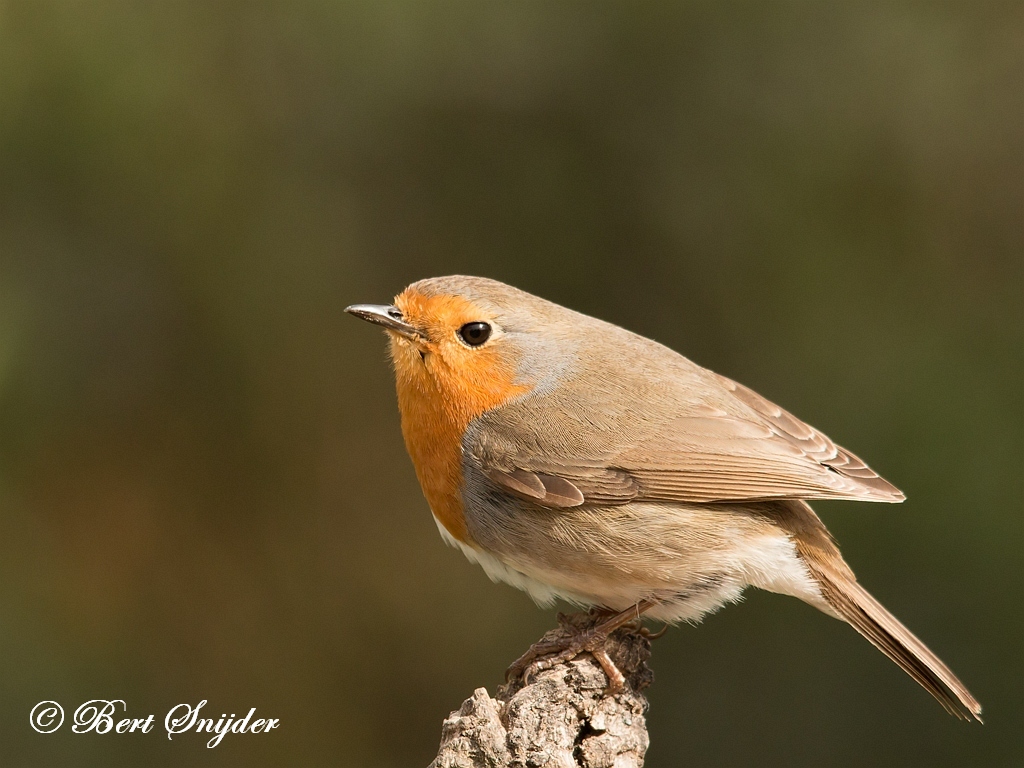
Other synonyms:
Asturian: Raitán
Breton: Ar boc’hruzig rujodenn, Ar boc’hruzig rujodenn, boc’hruzig, Brennid-ruz, Bruched-ruz, Buruig, Draouennig-vras, Kofig-ruz, Pêrig kof-ruz, Pichig-ruz, Richodell, Rujodenn, Torig-ruz
Catalan: Pit-roig, Rupit
Catalan (Balears): Rupit
Czech: Cervenka obecná
Welsh: Brongoch, Bronrhuddyn, Bronruddyn, Coch-gam, robin goch
Danish: Rødhals
German: Kehlchen, Rotkehlchen
Greek: [K?kkin?laimis], k?kkin?laimis, ?????????????
English: European Robin, European Robin Robin, Robin
Spanish: Petirro, Petirrojo, Petirrojo Europeo
Estonian: Punarind
Basque: Pit-roig , Txantxan, txantxangorri, Txantxangorria
Finnish: Punarinta
Faroese: bringureyði, Reyðbrystingur
French: Rougegorge, Rougegorge familier
Frisian: readboarstke
Irish: paporroibo, paporrubio, pisco, spideog, Spideóg
Gaelic: Am Brù-Dhearg, Broinn Dearg, Brù-Dhearg
Galician: Paporrubio, Pit-roig
Manx: Cleean Jiarg, Spiitag, spittag
Hungarian: Vörösbegy
Icelandic: Glóbrystingur
Italian: Pettirosso, Pettirosso comune, Pettirosso europeo
Japanese: Eoropean Robin, yoaroppakomadori, yo-roppakomadori, Youroppa-komadori
Cornish: Rudhak, rudhek
Latin: Erithacus rubecula
Ladino: pietcuecen
Lithuanian: liepsnele
Macedonian: crvenoguška
Maltese: pitirross
Dutch: Roodborst
Norwegian: Rødkjelk, Rødkjelke, Rødstrupe
Occitan: papach rós, papachrós
Polish: Plochacz halny, rudzik, Rudzik zwyczajny
Portuguese: pisco de peito riuvo, pisco de peito ruivo, Pisco-de-peito-riuvo, Pisco-de-peito-ruivo
Romansh: puppen cotschen, Puppencotschen
Romanian: gusa-rosie
Romany: loli-kolinaki, lolo-kolinako
Russian: zarjanka
Sardinian: Barbarrubia
Scots: Broinn dearg
Northern Sami: guovssoloddi
Slovak: cervienka
Slovenian: tašcica
Albanian: gushëkuqi
Serbian: crvendac
Swedish: Rödhake
Travel Birdwatching Holiday Alentejo, Vacation Portugal for birders guided birdwatching Tours and Trips.